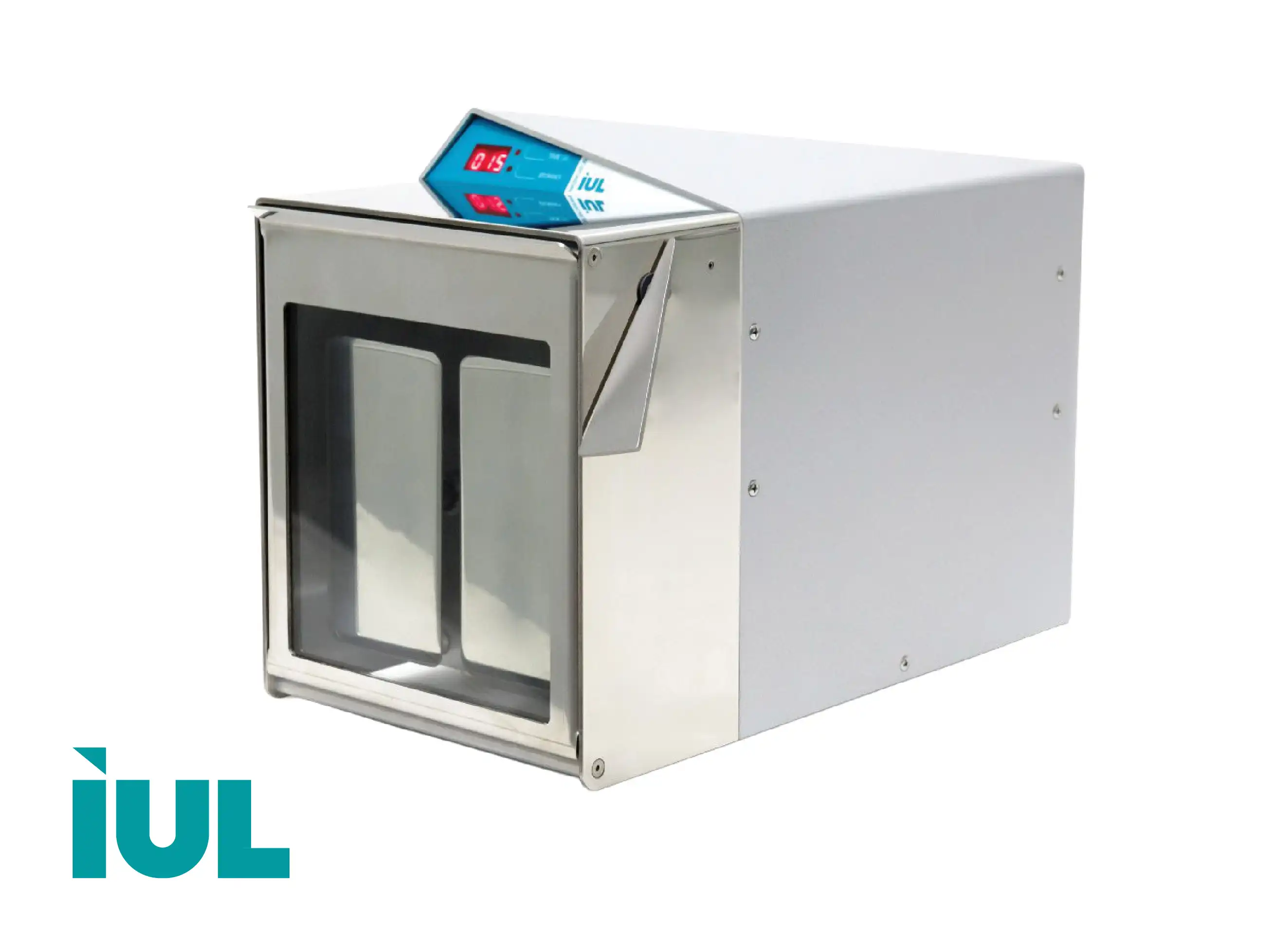
Home » Products » Microbiology Laboratory Solutions » Microbiology Testing » IUL Sample Preparation Devices
IUL Sample Preparation Devices
Advanced Sample Preparation Solutions for Microbiology
IUL Sample Preparation Devices
Modern sample preparation systems ensure uniform sample treatment, which is essential for achieving accurate microbial quantification and reproducible analytical outcomes. By mechanically reducing particle size and enhancing homogeneity, these instruments prevent sampling errors and ensure that microbial loads are evenly distributed within the sample matrix.
Sample preparation technologies in microbiology also enhance safety and workflow efficiency by minimizing manual handling and reducing the risk of cross-contamination. Enclosed processing environments, controlled mechanical action, and standardized operating parameters ensure that laboratory personnel can process diverse sample types consistently and safely. This controlled approach increases throughput, improves sample integrity, and supports reliable microbial evaluation in industries that rely on strict hygiene and quality assurance protocols, including food production, pharmaceuticals, and environmental monitoring.
Standardized Homogenization for Microbiological Accuracy
Sample preparation systems designed for microbiological testing provide highly controlled homogenization that converts a wide range of sample types into uniform suspensions suitable for analysis. By applying consistent mechanical force, these systems break down sample matrices effectively, ensuring that microorganisms trapped within complex structures are fully released without being damaged. This uniform preparation is essential for downstream workflows such as plating, dilution, or enumeration, where the distribution of microorganisms must be stable and representative. Such standardization reduces variability across batches, enabling laboratories to achieve reliable and repeatable microbial recovery under routine or high-throughput conditions.
Improved Workflow Efficiency for High-Volume Testing
Modern preparation tools support laboratories facing increasing sample loads by reducing manual handling and accelerating processing steps. Automated homogenization minimizes operator intervention, ensuring that each sample is processed with the same precision regardless of workload. This efficiency is particularly important in environments where time-sensitive testing is required, such as food safety labs and industrial microbiology units. By streamlining the initial stage of microbial analysis, preparation systems improve turnaround times, support higher productivity, and maintain testing consistency even under heavy daily volumes.
Controlled Containment for Safe Sample Handling
Sample preparation equipment integrates safety-focused containment features that prevent exposure to potentially hazardous materials. During homogenization, sealed containers and controlled mechanical action ensure that aerosols, spills, or contamination events are prevented, protecting both operators and the laboratory environment. This controlled containment is particularly valuable when working with raw food samples or environmental materials, where microbial composition may be unknown. By maintaining a secure processing zone, laboratories reduce biological risks while preserving the integrity of each sample.
Consistent Preparation Across Diverse Sample Matrices
Microbiological testing frequently involves materials with varying structures—soft, fibrous, particulate, or heterogeneous. Sample preparation technologies are engineered to handle this diversity while delivering the same level of uniformity across all sample types. Whether the material is dense or fragile, modern homogenization systems ensure reproducible breakdown and mixing, enabling laboratories to maintain analytical comparability across different testing batches. This adaptability supports standardized workflows regardless of matrix complexity.
Reduced Variability in Microbial Enumeration
Accurate microbial enumeration begins with a well-prepared sample. Homogenization systems ensure that microorganisms are evenly dispersed throughout the final suspension, reducing the chances of localized concentration spikes or uneven microbial loads. This even distribution yields more reliable results in plate counts, dilution series, and automated enumeration systems. By minimizing preparation-related variability, laboratories achieve tighter analytical ranges and stronger confidence in their final results.
Minimizing Manual Workload for Greater Productivity
Sample preparation instruments help reduce the physical and repetitive burdens associated with manual processing. By decreasing the need for repetitive handling, technicians can focus on analytical tasks rather than mechanical preparation steps. This reduces fatigue, improves consistency, and ensures that each sample receives identical mechanical treatment. The overall effect is higher laboratory productivity and a reduced likelihood of error during sample handling.
Supporting Large-Scale Microbiological Testing Programs
Facilities that process numerous samples daily rely on preparation solutions capable of delivering stable performance over extended periods. Advanced homogenization equipment supports continuous operation, handling repeated workloads while maintaining consistent output. This level of reliability is essential for laboratories conducting regulatory testing, industry compliance checks, or routine monitoring, where delays or inconsistencies could disrupt entire production cycles.
Strengthening Reliability in Downstream Microbial Analysis
The quality of microbiological testing depends heavily on the initial sample preparation step. When samples are homogenized correctly, every subsequent stage—whether incubation, plating, dilution, or enumeration—begins with a uniform starting point. This reduces the likelihood of false trends, inconsistent colony formation, or misleading microbial loads. By improving the first step in the workflow, laboratories enhance the scientific accuracy and operational reliability of their entire testing process.
Read More About IUL Products Here










